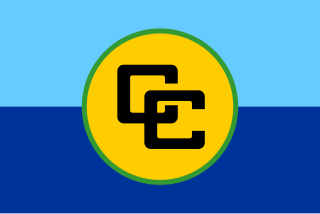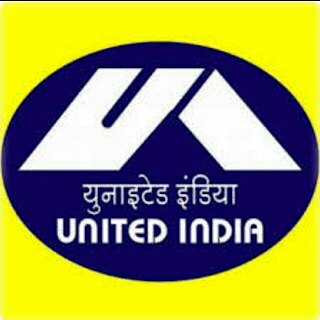
A public–private partnership is a long-term arrangement between a government and private sector institutions. Typically, it involves private capital financing government projects and services up-front, and then drawing revenues from taxpayers and/or users for profit over the course of the PPP contract. Public–private partnerships have been implemented in multiple countries and are primarily used for infrastructure projects. Although they are not compulsory, PPPs have been employed for building, equipping, operating and maintaining schools, hospitals, transport systems, and water and sewerage systems.
Procurement is the process of locating and agreeing to terms and purchasing goods, services, or other works from an external source, often with the use of a tendering or competitive bidding process. The term may also refer to a contractual obligation to "procure", i.e. to "ensure" that something is done. When a government agency buys goods or services through this practice, it is referred to as government procurement or public procurement.

The Office of Government Commerce (OGC) was a UK Government Office established as part of HM Treasury in 2000. It was moved into the Efficiency and Reform Group of the Cabinet Office in 2010, before being closed in 2011.

Wärtsilä Oyj Abp, trading internationally as Wärtsilä Corporation, is a Finnish company which manufactures and services power sources and other equipment in the marine and energy markets. The core products of Wärtsilä include technologies for the energy sector, including gas, multi-fuel, liquid fuel and biofuel power plants and energy storage systems; and technologies for the marine sector, including cruise ships, ferries, fishing vessels, merchant ships, navy ships, special vessels, tugs, yachts and offshore vessels. Ship design capabilities include ferries, tugs, and vessels for the fishing, merchant, offshore and special segments. Services offerings include online services, underwater services, turbocharger services, and also services for the marine, energy, and oil and gas markets. At the end of December 2023, the company employed 17,800 workers.

A concession or concession agreement is a grant of rights, land, property, or facility by a government, local authority, corporation, individual or other legal entity.

The CARICOM Single Market and Economy, also known as the Caribbean Single Market and Economy (CSME), is an integrated development strategy envisioned at the 10th Meeting of the Conference of Heads of Government of the Caribbean Community (CARICOM) which took place in July 1989 in Grand Anse, Grenada. The Grand Anse Declaration had three key Features:
- Deepening economic integration by advancing beyond a common market towards a Single Market and Economy.
- Widening the membership and thereby expanding the economic mass of the Caribbean Community.
- Progressive insertion of the region into the global trading and economic system by strengthening trading links with non-traditional partners.
Government procurement or public procurement is undertaken by the public authorities of the European Union (EU) and its member states in order to award contracts for public works and for the purchase of goods and services in accordance with principles derived from the Treaties of the European Union. Such procurement represents 13.6% of EU GDP as of March 2023, and has been the subject of increasing European regulation since the 1970s because of its importance to the European single market.
Government procurement or public procurement is when a governing body purchases goods, works, and services from an organization for themselves or the taxpayers. In 2019, public procurement accounted for approximately 12% of GDP in OECD countries. In 2021 the World Bank Group estimated that public procurement made up about 15% of global GDP. Therefore, government procurement accounts for a substantial part of the global economy.

Senate Properties is a Finnish unincorporated state-owned enterprise, which manages a major part of the real estate assets owned by the Republic of Finland.
The Single European Railway Directive 2012 is an EU Directive that regulates railway networks in European Union law. This recast the First Railway Directive" and consolidates legislation from each of the first to the fourth "Package" from 1991 to 2016, and allows open access operations on railway lines by companies other than those that own the rail infrastructure. The legislation was extended by further directives to include cross border transit of freight.
All European countries show eGovernment initiatives, mainly related to the improvement of governance at the national level. Significant eGovernment activities also take place at the European Commission level as well. There is an extensive list of eGovernment Fact Sheets maintained by the European Commission.
The Nigeria Customs Service (NCS) is an agency of the Federal Republic of Nigeria, which operates as an independent customs service under the supervisory oversight of the Nigerian Ministry of Finance, responsible for the collection of customs revenue, facilitation of both national and international trade, anti-smuggling and border security activities.

NBCC (India) Limited, formerly known as National Buildings Construction Corporation is a public sector undertaking (PSU) company under the Ministry of Housing and Urban Affairs, Government of India.

Consip is an Italian state-owned company that provides frameworks and consultation for the procurement of public goods and services. It was set up as a joint-stock company in 1997 and is owned by Italy's Ministry of Economy and Finance (MEF), which is the sole shareholder. The company operates in keeping with the MEF's strategic goals, working exclusively to serve the public administration.

United India Insurance Company Limited (UIICL) is an Indian public sector insurance company owned by the Government of India and administered by the Ministry of Finance. Headquartered in Chennai, Tamil Nadu, the company has 30 regional offices and more than 1,400 operating offices nationwide, including 511 micro offices, as of 31 March 2023. It also had underwriting operations in Hong Kong that ceased effective 1 April 2002, following which the New India Assurance Company Limited, Hong Kong, has taken over the run-off portfolio. This foreign operation had three outstanding claims as of 31 March 2023. The company was incorporated on 18 February 1938 and nationalized in 1972. The Company recorded a gross direct premium income of ₹17,644 in the financial year 2022-23, registering a growth of 12.23% over the previous year.
The Finnish Competition and Consumer Authority is the Competition regulator in Finland. It is the regulatory authority of Politics of Finland which works in the field of competition and consumer rights protection. The purpose of the Finnish Competition and Consumer Authority is to create healthy and effective markets in which companies and other operators act responsibly and in keeping with consumers' interests.
At around £290 billion every year, public sector procurement accounts for around a third of all public expenditure in the UK. EU-based laws continue to apply to government procurement: procurement is governed by the Public Contracts Regulations 2015, Part 3 of the Small Business, Enterprise and Employment Act 2015, and the Public Contracts (Scotland) Regulations of 2015 and 2016. These regulations implement EU law, which applied in the UK prior to Brexit, and also contain rules known as the "Lord Young Rules" promoting access for small and medium enterprise (SMEs) to public sector contracts, based on Lord Young's Review Growing Your Business, published in 2013.

Colombia–European Union relations are the diplomatic and commercial relations between the Republic of Colombia and the European Union. Colombia has a free trade and free movement agreement with the EU. Colombia has an embassy in Brussels, which is responsible for managing relations with the European Union, while the latter has a representation through the Delegation of the European Union in Colombia in Bogotá.











